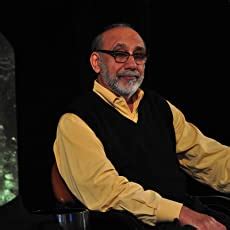A Quote by James E. Faust
True disciples are those who go beyond simply believing. They act out their belief.
Related Quotes
A religious belief is not a statement about Reality, but a hint, a clue about something that is a mystery, beyond the grasp of human thought. In short, a religious belief is only a finger pointing to the moon. Some religious people never get beyond the study of the finger. Others are engaged in sucking it. Others yet use the finger to gouge their eyes out. These are the bigots whom religion has made blind. Rare indeed is the religionist who is sufficiently detached from the finger to see what it is indicating - these are those who, having gone beyond belief, are taken for blasphemers.
Religion becomes a matter of belief, and belief acts as a limitation on the mind; and the mind then is never free. But it is only in freedom that you can find out what is true, what is God, not through any belief; because your belief projects what you think God ought to be, what you think ought to be true. If you believe God is love, God is good, God is this or that, your very belief prevents you from understanding what is God, what is true.
The key to the missionary's work is the authority of Jesus Christ, not the needs of the lost. We are inclined to look on our Lord as one who assists us in our endeavors for God. Yet our Lord places Himself as the absolute sovereign and supreme Lord over His disciples. He does not say that the lost will never be saved if we don't go- He simply says, "Go therefore and make disciples of all the nations...."
Belief isn't simply a thing for fair times and bright days...What is belief - what is faith - if you don't continue in it after failure?...Anyone can believe in someone, or something that always succeeds...But failure...ah, now, that is hard to believe in, certainly and truly. Difficult enough to have value. Sometimes we just have to wait long enough...then we find out why exactly it was that we kept believing...There's always another secret.
So long as knowledge goes beyond mere true belief, foreknowledge is implausible, since having and relying on relevant true beliefs is sufficient for inquiry. A stepping-stone version of prior true belief seems reasonable, though perhaps we should accept only an even weaker view: a stepping-stone version of roughly-accurate beliefs.
Belief comes spontaneously as well as by effort. Belief is power. An insincere and uninspired seeker is aware of the truth that belief is power, but he cannot go beyond understanding or awareness; whereas a sincere, genuine, devoted and surrendered seeker knows that belief is dynamic power, and he has this power as his very own.
It is indeed surprising that a man inspite of his belief in the Fire of Jahannum is still able to laugh, and inspite of his belief in Maut he is able to be happy. Inspite of believing in the Reckoning, he commits evil deeds. Inspite of believing in Taqdeer, he grieves. Inspite of observing the world with its changes, he feels contented with it. Inspite of believing in Jannat, he refrains from righteous deeds.






































